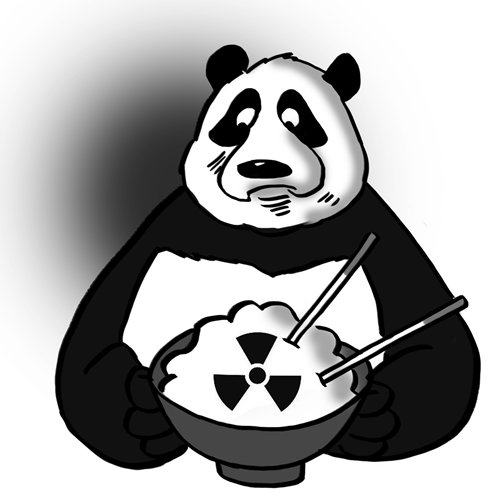
Illustration: Liu Rui/GT
According to Kyodo News Agency, China and Japan recently held talks on whether to ease or lift the ban on food imports from 10 Japanese prefectures imposed after the 2011 Fukushima nuclear disaster, with the Chinese government offering to set up a working group on the issue. There has been no official confirmation from the Chinese side.
The earthquake, which rocked Japan in March, 2011, caused a radiation leak from the Fukushima Daiichi Nuclear Power Station after which the Chinese government immediately banned food from Japanese prefectures surrounding the facility. Neither Beijing nor Tokyo has released any statement on lifting the ban, yet the Kyodo News Agency report attracted wide attention.
Since Japanese Prime Minister Shinzo Abe returned to power in late 2012, rebuilding people's confidence in affected areas both at home and abroad has become his major task. During the lower house election in 2014, Abe tasted grilled fish in Fukushima. When Britain's Prince William visited Japan in 2015, Abe invited him to visit Fukushima and enjoy local food with ingredients from local producers. Japanese Foreign Minister Taro Kono brought Fukushima peach juice to British Foreign Secretary Boris Johnson during his visit to the UK in December 2017.
The Abe administration has been proactively promoting the safety of Fukushima food on public occasions, with little success. According to research revealed by the NHK Broadcasting Culture Research Institute in 2016, many people are feeling more anxious about radiation in Fukushima. According to Japan's Ministry of Agriculture, Forestry and Fisheries, China, the US, Russia, South Korea, Singapore and other countries have kept their bans on importing food produced in some regions or sometimes from the whole country. This has been an awkward reality for Abe's administration.
It remains to be seen whether the working group will be eventually established. But it is an indisputable fact that Abe's administration has repeatedly requested the Chinese government to lift the ban on food imports over the past few years. For example, during the agricultural vice-ministerial meeting in Beijing in 2016, the Japanese side had hoped that China will remove food import restrictions. However, China did not give any specific reply. When Toshihiro Nikai, secretary general of Japan's Liberal Democratic Party, visited Beijing in December last year, he also expressed his wish of easing the import ban to the head of China's General Administration of Quality Supervision, Inspection and Quarantine.
It can be argued that China is Japan's primary destination for food exports from affected areas including Fukushima. This is not only because China has a huge market, but also because any Chinese move will be likely followed by other Asian countries.
With recent improvements in Sino-Japanese ties, the possibility of setting up a special working group cannot be ruled out. However, even if the group is established, Beijing may not completely lift import restrictions on Japanese food. On the one hand, the key to lifting the ban lies in whether food products from Japan can meet Chinese standards. On the other, Chinese people's doubts over the food in the affected areas also play a crucial role. Even if imported food from Japan's disaster-affected region passed Chinese tests, it is not very likely to appear on Chinese dining tables given the distrust of the Chinese public.
China and Japan are lately cooperating in a number of fields including economy and politics. Import and export of agricultural products is a vital link in the cooperation trail. According to a Xinhua report in March, some food from Japan's affected areas was flowing to China via e-commerce platforms, posing a severe safety risk to Chinese consumers. Therefore, when it comes to lifting the ban on food from disaster affected areas, China should exercise caution. Political interaction is important, but people's well-being is above all.
The author is a PhD candidate at the Graduate School of Sociology at Toyo University. opinion@globaltimes.com.cn Follow us on Twitter @GTopinion
